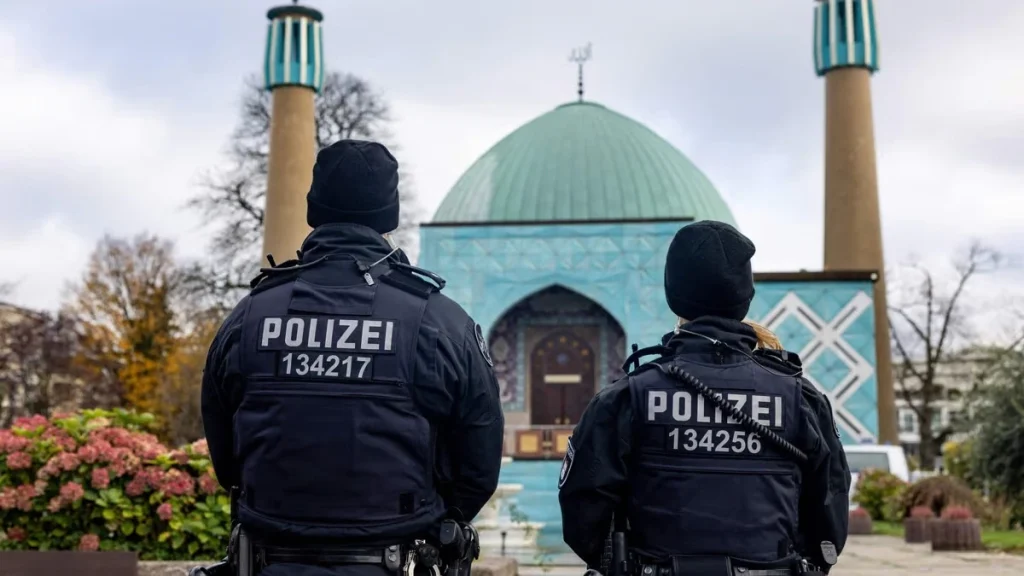Germany’s Interior Ministry announced on Wednesday the immediate ban of a Muslim organization. The group faces severe accusations of anti-constitutional conduct, including publicly campaigning for the establishment of a caliphate.
Simultaneously with the ban’s disclosure, law enforcement units executed raids on seven different properties. These buildings were located in the northern port city of Hamburg, the base of the targeted association, Muslim Interaktiv.
Minister Pledges Defense of Free Society
Interior Minister Alexander Dobrindt of the center-right CDU/CSU bloc issued a strong defense of the government’s action. “We will not allow organisations such as ‘Muslim Interaktiv’ to undermine our free society with their hatred… and attack our country from within,” Dobrindt declared.
The group first drew widespread national attention in April 2024. More than 1,200 individuals participated in a Hamburg rally organized by the association. They used the event to protest what they claimed were Germany’s Islamophobic policies.
Signs displayed prominently at the demonstration, including the message “the caliphate is the solution,” quickly became national news. This sparked an intense, countrywide debate.
The group also stands accused of promoting hatred against Israel and rejecting core women’s rights. Consequently, the ministry has mandated the association’s dissolution and the confiscation of all its assets.
Wider Security Sweep Targets Other Groups
The city of Hamburg reported that Muslim Interaktiv, which formed in 2020, maintained a significant online presence. Authorities noted the organization’s persistent message that the “entire Muslim community” was being rejected by German society and its political establishment.
Hamburg’s interior minister, Andy Grote, a Social Democrat (SPD), welcomed the ban. Grote stated that authorities had successfully “eliminated a dangerous and very active Islamist group.”
The police activity was not confined to Hamburg. Searches were also carried out on Wednesday in the western state of Hesse and in Berlin. These were part of distinct investigations focused on two other organizations, identified as “Generation Islam” and “Realitaet Islam.”
Germany has a history of decisive action against suspected radical groups. For instance, the government previously banned the NGO Ansaar in 2021.
That organization was suspected of diverting funds to finance Islamist terrorism under the guise of charitable activities.
Your Call to Serve: The Quest to Find Nigeria’s Next Health Heroes






